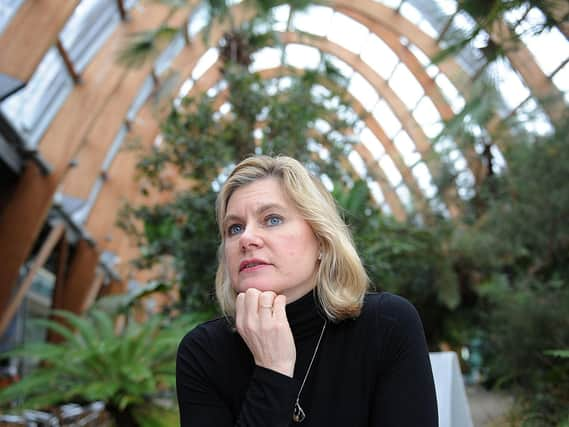The new dividing line in British politics - 'shouters' against 'fixers': Justine Greening


Surely, I thought, if they are looking at the same issues, they’d see the same solutions. But they didn’t.
As a nascent Conservative, I was to spend my formative years growing up in Rotherham rarely meeting people who shared the same political views.
Advertisement
Hide AdAdvertisement
Hide AdI was a Red Wall Tory long before it was ever to properly catch on.
It’s fair to say that most of my first discussions about politics with other students at my school had me in the smallest minority possible – just one – it was me and then the rest.
It could be uncomfortable saying I didn’t agree with everyone else. And the sheer difference in numbers on either side of a debate meant I did much more listening than talking.
But I wouldn’t have had it any other way because of what that experience helped me learn.
Advertisement
Hide AdAdvertisement
Hide AdIt taught me that all views counted, not just my own. I learnt to understand that others had a right to their views and if they were different to my own, so be it.
In being confronted from the earliest age with very different perspectives on life, I was forced to take them on board and to try to understand why they were held and what drove them.
It made me see a world not just through my eyes but others as well. And I discovered that respecting and engaging with difference was a far better way to forge links than shouting it down for the sake of it.
Now I am devoting myself to work on social mobility and levelling up.
Advertisement
Hide AdAdvertisement
Hide AdIt’s hugely rewarding to be involved in helping connect young people to opportunities that can change their lives for the better.
More than any other issue I’ve come across, enabling everyone to have the same chances to get on in life transcends party politics.
Pretty much everyone seems to care about it. As a result, those working with me in Parliament and beyond come from all parts of the political spectrum.
Our political diversity is a strength not a weakness. Instead of perceived political differences being the problem, they become the way we reach solutions.
Advertisement
Hide AdAdvertisement
Hide AdIt turns out there’s far more common ground than we’d ever expect. No political party has a monopoly on smart ideas on levelling up Britain.
Each has something to contribute.
I believe the leap of faith is to realise different thinking is not a barrier but instead the means by which we’ll find the whole picture.
Different MPs representing different places, of course, have different ideas about what we need to do to.
But alongside the rest of us – businesses, universities, public sector organisations and charities – we are working together to make progress on the Levelling Up Goals such as education, access to opportunity, health, housing and the digital divide.
Advertisement
Hide AdAdvertisement
Hide AdIt feels like a million piece jigsaw puzzle, where we all have our different pieces to put in place.
Achieving equality of opportunity for Britain requires a stronger politics that respects and is comfortable with difference, not a weak politics that feels threatened and wants to shout down different views.
Many of those involved in the recent by-election in Batley and Spen will recount how it was one of the most divisive, nasty elections they’d campaigned in for years.
In many ways it typified so much that has gone wrong with modern politics with the culture wars that seem to dominate our political discourse.
Advertisement
Hide AdAdvertisement
Hide AdThe problem is that we’ve gone down the shouting route rather than the listening, understanding and respecting route.
Unless we can break out of that we face a much harder task in rising to the complex issues that face a modern Britain.
What has our political discourse become when some politicians expend more time and energy not on debating an issue but debating how a point on an issue is made?
Whether we stand up to racism, or take the knee against it, is less important than action to tackle it.
Advertisement
Hide AdAdvertisement
Hide AdFinding division for the sake of it is particularly futile given everyone agrees the underlying point – stamping out abhorrent racism that blights lives.
It’s missing the bigger, more important picture of how we create the kind of fairer country we want to be.
I believe that post Covid-19, as we emerge from the terrible dark shadow this pandemic has cast, there will be a new dividing line for those in British politics and beyond.
Recent elections have shown that party affiliation and the colour of a candidate’s political rosette matters less and less to voters.
Advertisement
Hide AdAdvertisement
Hide AdThe dividing line will be between those in politics who are the destructive shouters, and those who are the constructive fixers.
Only the latter group can move this country forward.
They are in every party and often no party at all.
But it is they who will make the biggest difference on levelling up Britain.
Justine Greening is a former Education Secretary and co-founder of the Social Mobility Pledge.
Support The Yorkshire Post and become a subscriber today. Your subscription will help us to continue to bring quality news to the people of Yorkshire. In return, you'll see fewer ads on site, get free access to our app and receive exclusive members-only offers. Click here to subscribe.